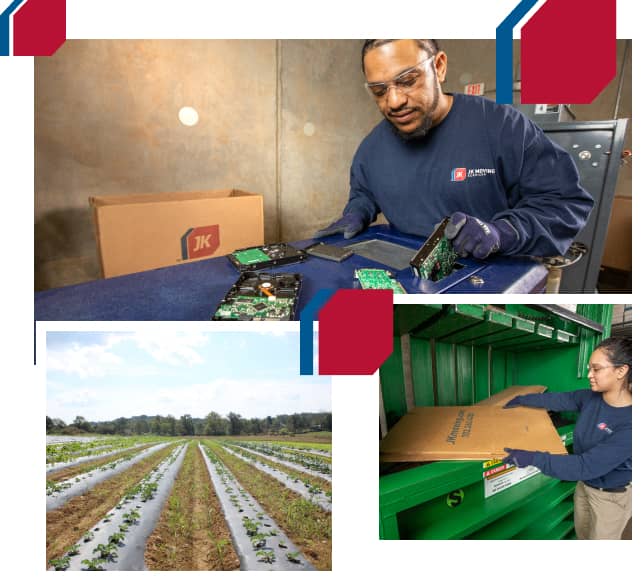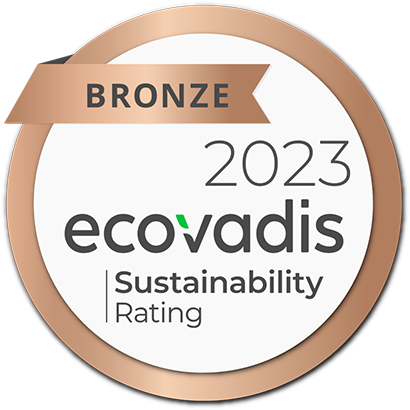Sustainability
at JK

Working to make moves good for the planet
JK Moving is committed to sustainable, green moving practices, evident by the over 4.5 million pounds saved from landfills each year – that’s more than the weight of at least 150 elephants.
How is this done? By deploying numerous strategies and processes that support sustainability, including using plastic reusable crates; re-purposing inventory; and employing practices like Zero Waste, where all materials are recycled back into nature or the marketplace in a healthy and environmentally friendly way.
JK’s BoxlessMove® is just one way we incorporate sustainability into our daily work. At our warehouses, we recycle paper, cardboard, and the wood from our crates, and we use a compactor and auger to reduce the volume of the materials we send to the landfill.

JK employs these green, sustainable moving tactics as standard protocol:
- Moving blankets are made from recycled fabrics.
- Driver and fuel tax reporting logs are paper-free.
- Motion sensors help control lighting and conserve energy throughout our facilities.
- Power units on our tractor trailers use environmentally friendly generators to reduce idling.
- Every truck purchased exceeds existing emissions standards, thanks to our industry partnerships with Volvo and Freightliner.
- Antifreeze and forklift and vehicle batteries are reused.
- Tires are retreaded to ensure optimal fuel use.
- Engine oil is reused as a heating source at our maintenance facility.
Sustainability task force
Established in 2000, our employee-led Sustainability Task Force maintains strict environmental practices impacting our building and surroundings. The task force extends its efforts to our supply chain – with environmental impact and sustainability efforts serving as key criteria for supplier selection.
EcoVadis is the world’s largest and most trusted provider of business sustainability ratings.
JK was awarded the Bronze EcoVadis Sustainability Rating for our focus on:
- the environment
- labor and human rights
- ethics
- sustainable procurement

